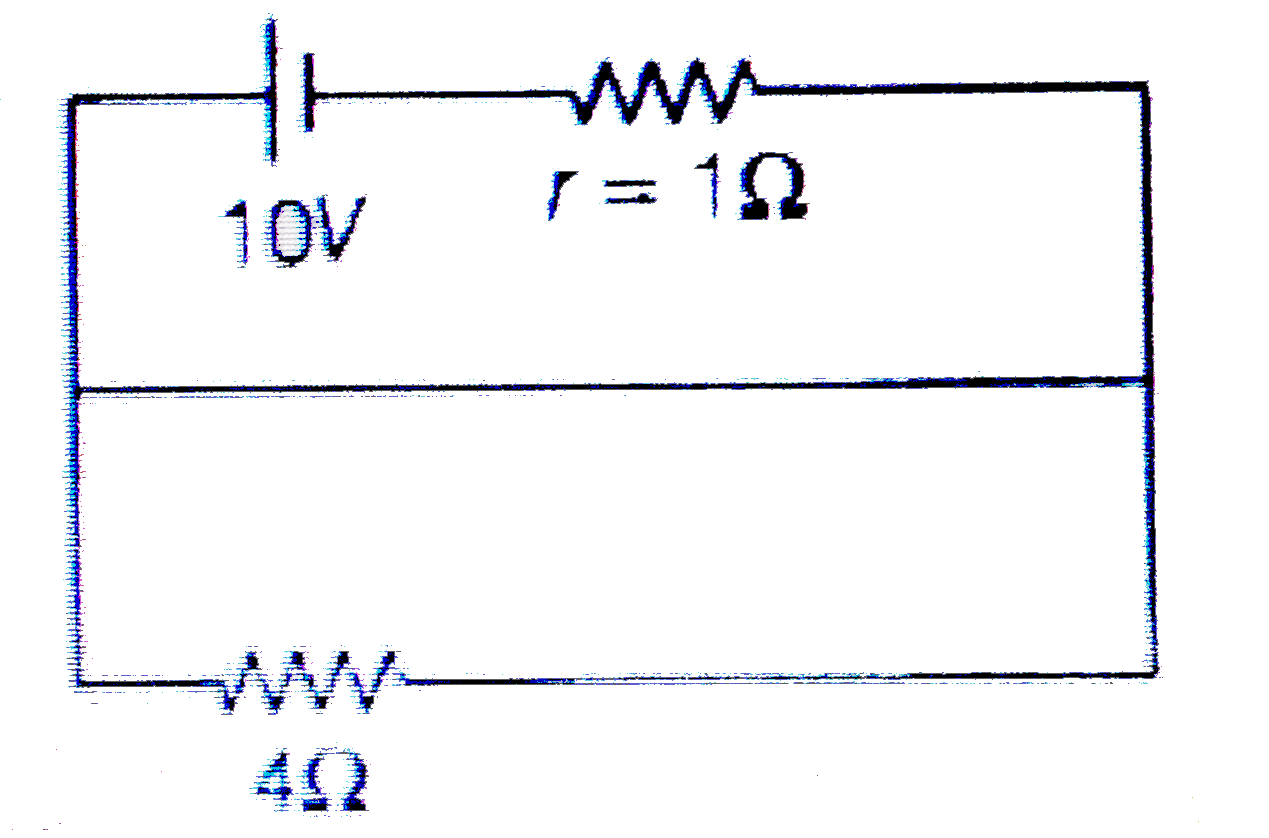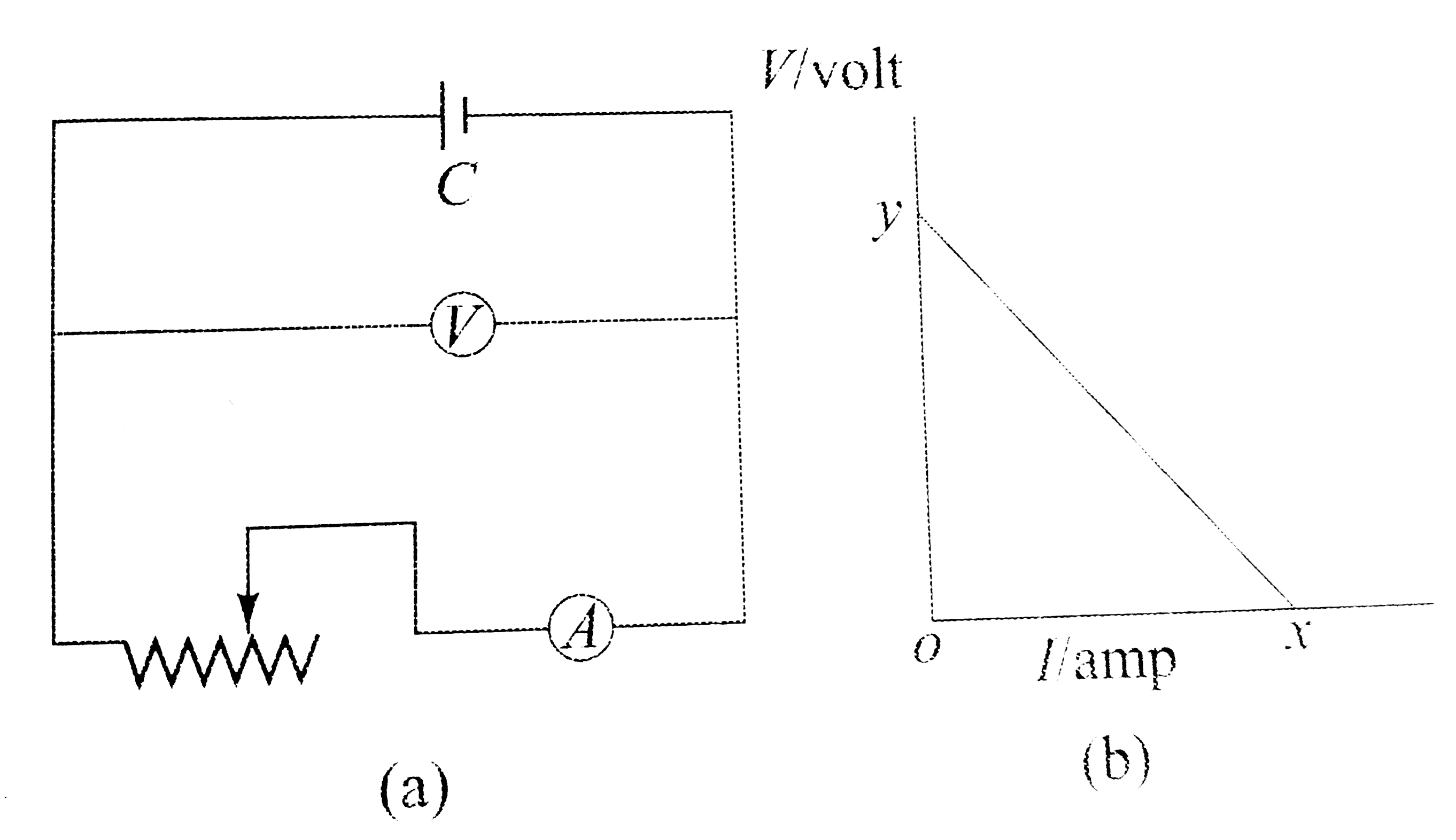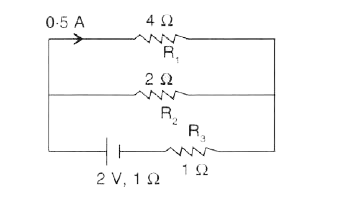If there is a single pathway for electric current to flow between the terminals of a battery then it is a
dry cell
wet cell
closed circuit
open circuit
To solve the question, we need to understand the concepts of electric circuits, specifically the difference between an open circuit and a closed circuit.
1. Understanding Electric Current: Electric current is the flow of electric charge, typically through a conductor like a wire. For current to flow, there must be a complete path.
2. Identifying Circuit Types:
- Closed Circuit: A closed circuit is one where there is a complete path for current to flow. This means that the circuit is unbroken, allowing electricity to travel from the positive terminal of the battery, through the circuit, and back to the negative terminal.
- Open Circuit: An open circuit is one where there is a break in the path. This break prevents current from flowing.
3. Analyzing the Given Situation: The question states that there is a "single pathway for electric current to flow between the terminals of a battery." This implies that there is no break in the path, but it does not specify if the path is complete or not.
4. Conclusion: Since the question mentions a "single pathway," it suggests that there is only one route for the current to flow. However, if there is indeed a single pathway that connects the positive and negative terminals without interruption, it would actually be a closed circuit. If there was a break or gap in that pathway, it would be an open circuit.
5. Final Answer: Therefore, if the single pathway is complete, it is a closed circuit. If it is not complete, it is an open circuit. Based on the context, if we assume the pathway is complete, the answer is closed circuit.
- Closed Circuit: A closed circuit is one where there is a complete path for current to flow. This means that the circuit is unbroken, allowing electricity to travel from the positive terminal of the battery, through the circuit, and back to the negative terminal.
- Open Circuit: An open circuit is one where there is a break in the path. This break prevents current from flowing.
Topper's Solved these Questions
- ELECTRICITY AND MAGNETISM BOOK - ICSECHAPTER - ELECTRICITY AND MAGNETISM EXERCISE - EXERCISE (SECTION I) (Write T for True and F for False. Correct the false statements)
6 Videos
- ELECTRICITY AND MAGNETISM BOOK - ICSECHAPTER - ELECTRICITY AND MAGNETISM EXERCISE - EXERCISE (SECTION I) (Choose the correct option to fill in the blank)
15 Videos
- ELECTRICITY AND MAGNETISM BOOK - ICSECHAPTER - ELECTRICITY AND MAGNETISM EXERCISE - EXERCISE (SECTION I)
9 Videos
- ENERGYBOOK - ICSECHAPTER - ENERGYEXERCISE - EXERCISE (PICTURE STUDY)
3 Videos
Similar Questions
Potential different across the terminals of the battery shown in figure is

View SolutionA storage battery with emf 2.6V loaded with external resistance produces a current 1A. In this case, the potential difference between the terminals of the storage battery equals 2V. Find the thermal power generated in the battery and the net power supplied by the battery for external circuit.
View Solution
Knowledge Check
The electrode connected to positive terminal of the battery is called _____
ACathodeBAnodeCElectrodeDNone of these
A car has a fresh storage battery of emt 12V and internal resistance 5.0×10−2Ω. If the starter moter draws a current of 90A, what is the terminal voltage of the battery when the starter is on?
(b) After long use, the internal resistance of the storange battery increase to 500Ω. What maximum current can be drawn from the battery? Assume the emt of the battery to remain unchanged.
(c) If the discharged battery is changed by an external emf source, is the terminal voltage of the battery during changing greater of less than is emf 12V?
View SolutionA battery has e.m.f. 4 V and internal resistance r . When this battery is connected to an external resistance of 2 ohms , a current of 1 amp . flows in the circuit. How much current will flow if the terminals of the battery are connected directly
View Solutionshows a circuit used in an experiment to detrmine the emf and interanl resistance of the battery C. A graph was plotted of the potential difference V between the terminals of the battery against the current I, which was varied by adjusting the rheostat. The graph is shown in x and y are the intercepts of the graph with the axes as shown. What is the internal resistance of the battery?

View SolutionPotential difference across the terminal of a non ideal battery is
View SolutionWhat is meant by electric circuit ? Why does electric current start flowing in a circuit the moment circuit is complete ? When do we say that the potential difference across a conductor in a circuit is 1 volt ?
Calculate the potential difference between the two terminals of a battery if 12 joules of work is done in transferring 2 coulombs of charge.
View SolutionIn an electric circuit shown alongside, find

terminal voltage of the battery
View SolutionA steady electric current is flowing through a cylindrical conductor. Then,
View Solution
